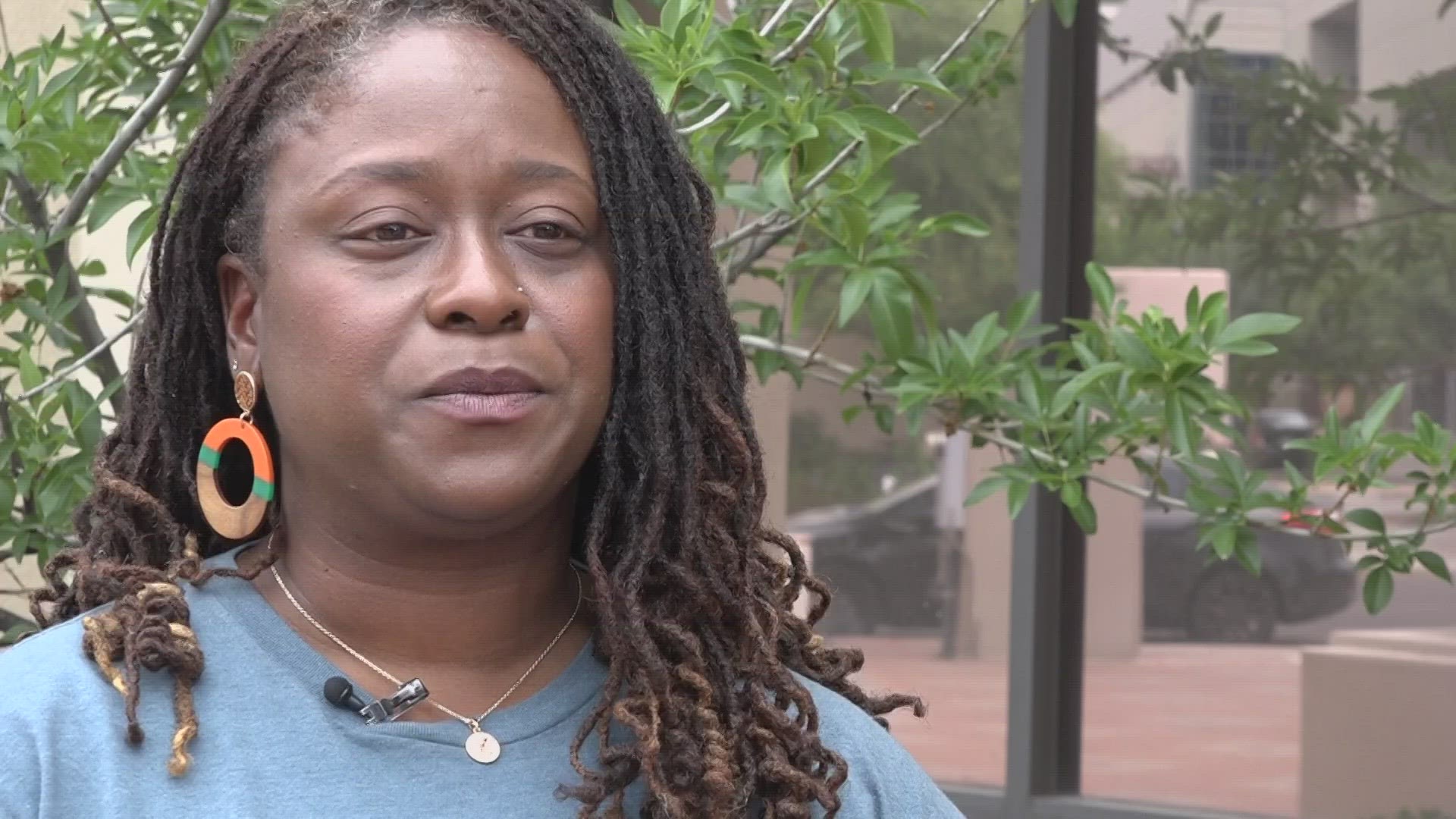PHOENIX — One in five women can experience mood and anxiety disorders during pregnancy and postpartum.
Kristy Christopher-Holloway, a trainer with Postpartum Support International (PSI) said the spectrum of disorders, which include things like postpartum depression, doesn't discriminate.
"They do affect women of color and people of color at higher rates," Christopher-Holloway, said. "That's due to issues such as racism, due to issues such as biological weathering, all of the other factors that people of color have to experience and do experience."
Karla Cardoza, a therapist who also works with the nonprofit PSI, said it also comes from beliefs people are born into.
"They're very conditioned in our minds that, 'I have to do it all,' and that's not the reality," Cardoza said. "I'm OK and I need to take a moment to recognize the season where I'm in – that it's OK for me to ask for help and receive the help."
That's why providers gathered in Phoenix for the first-ever Black, Indigenous, People of Color (BIPOC) training to learn how to better help those in the throes of perinatal mood and anxiety disorders.
"Deaths associated with postpartum mood disorders is 100% preventable," said Lakisa Muhammad, founder of Arizona Birthworkers of Color.
Muhammad said the three-day training put on by PSI and Arizona Birthworkers of Color is a step forward that will allow these providers to help those in their care and communities.
"That will push us to the next level of understanding of perinatal mental and anxiety disorders within our communities, leading to more treatment, leading to more diagnoses, leading to happier healthy families here in Arizona," Muhammad said.
Daili Lister, who's a mom, postpartum doula and also works with the Navajo Breastfeeding Coalition, said she has experienced postpartum depression.
"The first time around – I didn't know, I had no idea what I was experiencing, what I was going through what was going to happen," Lister said.
Lister said she attended the training so she can learn even more to help others.
"Coming from an indigenous community, it's not [really] talked about, mental health and so forth. And so I want to be able to learn how I can support others that might be experiencing this because my story is just my story and others have their own," Lister said.
Still, the message for those who are going through any pregnancy or postpartum mood and anxiety disorder is that there is support available.
"You're not alone," Cardoza said. "Tu no estás sola - You are not alone."
Up to Speed
Catch up on the latest news and stories on the 12News YouTube channel. Subscribe today.

